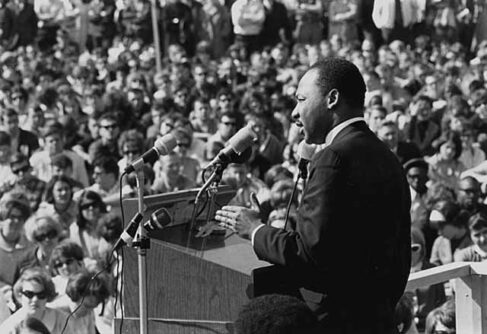Facebook—the social media platform where 1.2 billion people post “status updates,” “like” each other’s photos, and share other web content—turned 10 this week.
I visit Facebook nearly daily and appreciate how it’s made it easier to stay in touch with distant family and friends.
But Facebook has its downsides. Among the more minor of these: Facebook has stripped the distinction that some people used to enjoy of being the person in a social circle who could remember everyone’s birthdays, and Facebook has expunged the perfectly good verb “befriend” from the English language (shouldn’t we “befriend” each other on Facebook rather than “friend” them?).
The perhaps most-common complaint against Facebook is that it has greatly eroded our expectations of privacy and altered our notion what kind of information should be kept in confidence.
The loss of privacy seems like something we each suffer as individuals—I lose my privacy. However, the erosion of privacy seems connected to an important social trend: declining social trust.
Social trust is the sense that others can be relied upon to do what’s right—that you can count on fair treatment from others around you, even if they’re not family members or friends.
While levels of social trust have gone up and down over the decades, we seem to be hitting new lows: in a large recent survey, twice as many people said “you can’t be too careful” as said “most people can be trusted.”
And, while 350 million photos are uploaded everyday on Facebook, six in ten respondents to an AP-GfK poll said that they trusted “just somewhat” or “not too much/not at all” people with whom they share photos, video, and other information on social media.
Apparently, all that sharing on Facebook is accompanied by unease about what may happen with that private information. So the disclosure on Facebook of so much information that, until recently, would have remained entirely private or limited to a small circle of intimates may be driving down levels of social trust yet further.
This has important consequences for the future. Levels of social trust seem to vary by age, as older people typically report greater levels of social trust than young people. There also seem to be what social scientists call “cohort” effects—that the shared experiences of people of a similar age can endow their age cohort with greater or lesser levels of social trust (for example, the “Greatest Generation” was marked by particularly high social trust, perhaps its members shared the common formative experience and shared sacrifices of World War II).
If today’s young people’s common formative experience is being plugged into their tablets and phones—an experience that in itself is associated with distrust about what will happen with private information—one can only suppose that levels of social trust will continue to decline. Since civil society rests on a base of social trust, that should be concerning to us all.






